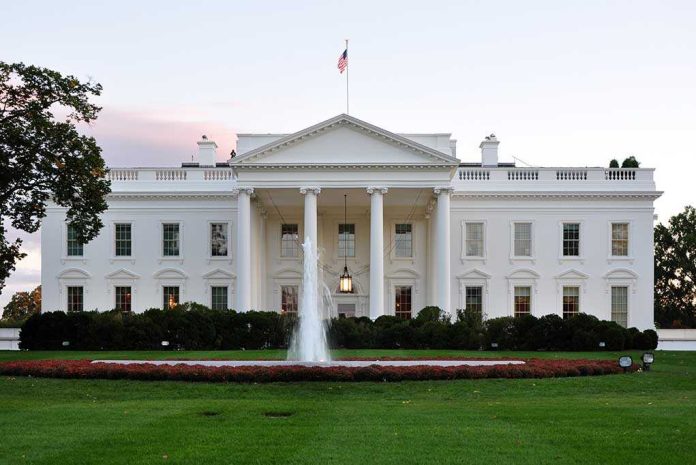
News of a former jihadist terror chief set to visit the White House has conservatives questioning America’s foreign policy direction and the security implications for our nation.
Story Highlights
- Syria’s president, a former jihadist terror leader, is scheduled for a historic White House visit this November.
- Many conservatives remain skeptical about engaging with regimes linked to terrorism, fearing risks to national security.
- President Trump’s administration has prioritized tough borders and American safety, marking a stark contrast to prior White House openness to adversarial regimes.
- The planned meeting has reignited debate over foreign policy, constitutional values, and America’s role on the world stage.
Syrian President’s Planned White House Visit Raises Alarm
Syrian Foreign Minister Asaad al-Shaibani announced that President Ahmed al-Sharaa, previously known as a jihadist terror chief, will travel to the White House in early November. This unprecedented invitation has sparked concern among Americans who value national security and constitutional principles. Critics argue that offering the prestige of a White House visit to a former jihadist risks legitimizing extremist regimes and undermining decades of hard-won progress against global terrorism. The planned event stands in sharp contrast to the Trump administration’s record of prioritizing American interests and border security.
President Trump’s foreign policy has consistently emphasized the safety and sovereignty of the United States. Since returning to office, he has secured ceasefires in the Middle East and pressured NATO allies to increase defense spending, sending a strong message that American leadership will not tolerate threats from hostile actors. The administration’s approach has resulted in multiple Nobel Peace Prize nominations and a pathway to stability for Syria, demonstrating that robust negotiations and decisive action can achieve results without compromising American values or safety. This context makes the invitation to Syria’s controversial leader all the more striking for conservatives who recall years of ineffective globalism under previous administrations.
Conservative Concerns Over National Security and Constitutional Values
For many on the right, the prospect of a former terror chief entering the White House is a direct affront to conservative values and the Constitution. Strong national borders, the defense of American families, and vigilance against foreign threats are foundational principles. President Trump’s administration has made significant progress in restoring these principles: closing the border to illegal immigration, ending federal programs that divert resources to non-citizens, and strengthening law enforcement agencies. The White House’s willingness to meet with leaders tied to terrorism in the past often coincided with policies that eroded these core protections, fueling today’s skepticism among conservatives.
Americans frustrated by past years of “woke” agendas, government overreach, and globalist policies see the current administration’s achievements as a restoration of constitutional order. With historic surpluses in the Treasury, growing blue-collar wages, and a renewed sense of law and order, the Trump administration has reversed the damage inflicted by leftist fiscal mismanagement and open-border policies. The possible visit by Syria’s president serves as a reminder of what is at stake: the continued defense of American sovereignty versus the dangerous appeasement of adversarial foreign powers.
Foreign Policy at a Crossroads: Accountability or Accommodation?
The announcement of the upcoming White House meeting has reignited debate about the direction of U.S. foreign policy. Supporters of President Trump point to his record of holding foreign regimes accountable, from obliterating Iran’s nuclear program to designating international cartels as terrorist organizations. These decisive actions stand in contrast to approaches that accommodate or legitimize adversarial leaders. Critics worry that welcoming a former jihadist to the White House could send the wrong signal to both America’s allies and enemies, potentially weakening the global fight against terrorism and undermining the morale of those who defend our freedoms.
Limited data available; key insights summarized. As the nation awaits further details on the terms and purpose of the Syrian president’s visit, conservatives remain vigilant. They urge American leaders to uphold the Constitution, safeguard national security, and preserve the values that have made the United States a beacon of freedom in a dangerous world.
Sources:
President Trump Marks Six Months in Office with Historic Successes
Trump Administration Accomplishments – McLean County Republicans
Celebrating Big Wins of the Trump Administration – HHS.gov
Trump’s 2025 Executive Orders – Holland & Knight




